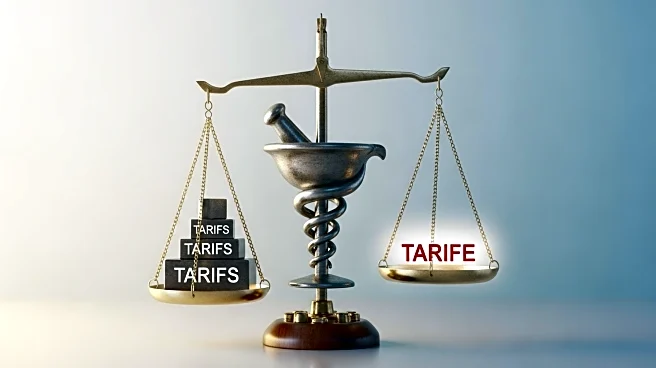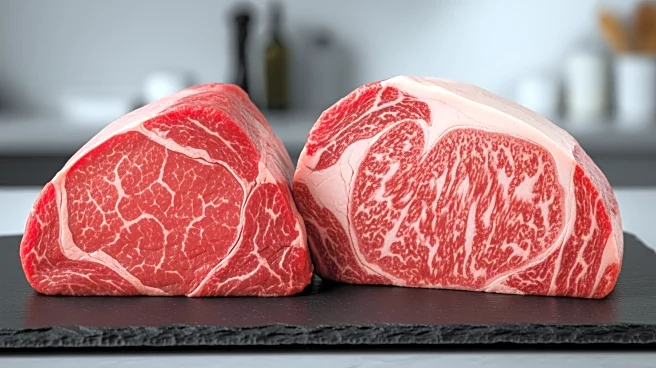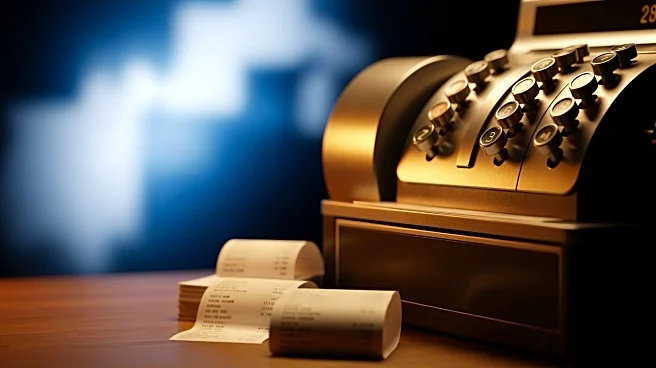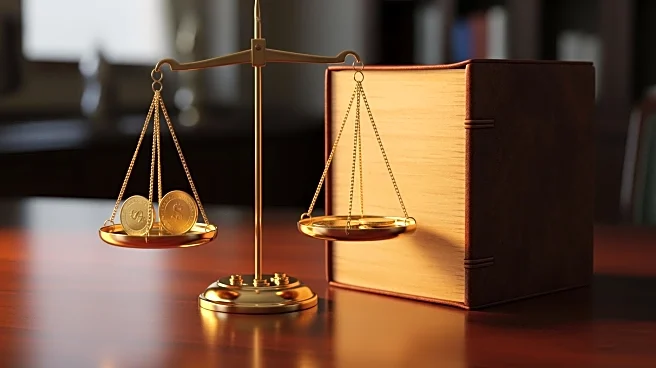What's Happening?
India's pharmaceutical sector has been exempted from President Trump's recent tariff hike, which imposed an additional 25 percent duty on Indian goods. This exemption is attributed to India's role as a leading supplier of generic drugs, which are crucial for affordable healthcare in the U.S. Indian generics account for about 35 percent of India's total pharma shipments to the U.S. Sudarshan Jain, Secretary General of the Indian Pharmaceutical Alliance, emphasized the importance of Indian generics in the U.S. healthcare system. Despite the exemption, the sector remains under review as part of the ongoing Section 232 investigation. A report by India Ratings and Research highlights the cost advantage of Indian generics, although U.S. revenue for Indian pharma has declined due to price erosion and margin pressure.
Why It's Important?
The exemption of Indian pharmaceuticals from tariffs is significant for the U.S. healthcare system, which relies heavily on affordable generic drugs. This decision helps maintain the cost-effectiveness of healthcare in the U.S., benefiting consumers who depend on these medications. Indian pharmaceutical companies, while facing challenges like price erosion, have diversified revenue models and healthy balance sheets, minimizing risks from potential future tariffs. The exemption underscores the strategic importance of international trade relations in healthcare and the need for affordable medication access.
What's Next?
The Indian pharmaceutical sector will continue to be monitored under the Section 232 investigation, which could lead to future policy changes. Stakeholders in both countries may engage in discussions to ensure the continued flow of affordable generics. The U.S. healthcare industry and policymakers will likely assess the long-term implications of this exemption on drug pricing and availability.









